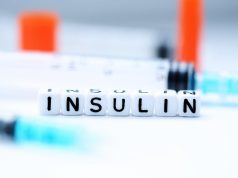Patients prescribed SGLT2 inhibitors less likely to exhibit nodule growth and to undergo a surgical intervention
By Elana Gotkine HealthDay Reporter
MONDAY, Oct. 20, 2025 (HealthDay News) — For patients with diabetes and early-stage pulmonary malignancies, administration of a sodium-glucose cotransporter 2 inhibitor (SGLT2-i) slows nodule growth and reduces the need for surgical interventions, according to a study presented at CHEST 2025, the annual meeting of the American College of Chest Physicians, held from Oct. 19 to 22 in Chicago.
Katherine Welch, M.D., from the Hospital of the University of Pennsylvania in Philadelphia, and colleagues conducted a retrospective analysis to examine whether administration of an SGLT2-i would slow growth and reduce surgical interventions in early-stage pulmonary malignancies. Patients with diabetes with a lung nodule confirmed between 2014 and 2024 were identified; those who were prescribed an SGLT2-i were compared to those using an alternative class of antidiabetic medication (109 and 109 patients).
The researchers found that compared with those who were prescribed alternative antidiabetic medications, patients who were prescribed an SGLT2-i were significantly less likely to exhibit lung nodule growth (13.8 versus 25.7 percent). Compared with those taking alternative antidiabetic medications, patients prescribed an SGLT2-i were significantly less likely to undergo a surgical intervention (5.5 versus 11.9 percent; hazard ratio, 0.15). To prevent one additional surgical intervention over a 10-year period, the number needed to treat with an SGLT2-i was 15.6 patients.
“SGLT2 inhibitors may hold therapeutic potential for patients with early-stage pulmonary adenocarcinoma by slowing nodule growth and reducing the need for surgical interventions such as biopsies and resections,” Welch said in a statement. “This may have far-reaching implications to other early-stage adenocarcinomas.”
Copyright © 2025 HealthDay. All rights reserved.








